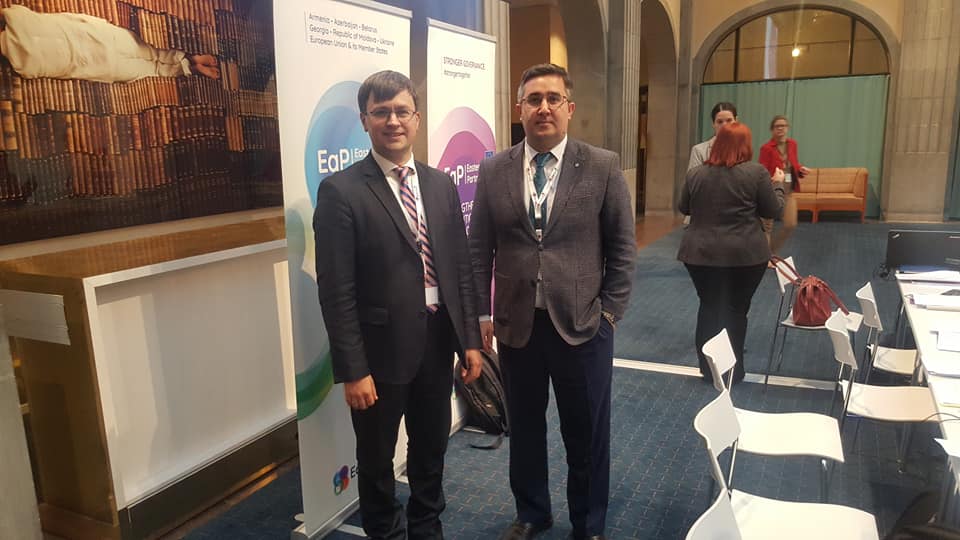Stockholm, 3 – 4 December 2019
17th EaP Panel on Governance and Public Administration Reform
During the panel meeting on Public Administration Reform (PAR) in Stockholm, Iulian Rusu (IPRE, Moldova) and Ziya Guliyev (Baku Academy of International Law and Human Rights and CIVICUS, Azerbaijan) have advocated for making public service more attractive, and for equipping civil administrators with databases that are more readily available and interoperable. Additionally, they contributed with ideas on how to measure the impact of public administration reforms on policy making more effectively.
The Forum representatives contributed to the discussion on “Quality of the policymaking process”. In particular, three issues were touched: availability and interoperability of databases, impact of the public administration reforms on policy making, and measures to increase attractiveness of the public service and enhance the quality of public policy making. Guliyev and Rusu suggested to better operationalise interoperability and to increase the number of civil servants with rights to access databases managed by other bodies (tailored access, registered actions of accessed data, limitation to sensitive data, justification of access). Furthermore, administrations of EaP countries should extend the use of e-signatures in public service in order to increase quality and effectiveness of public policy making, particularly at the stages of coordination and consultation with other public authorities. Lastly, the practice of procurement of databases needs harmonisation. In this regard, limited copyright could allow individual upgrades and adjustments of existing databases. Furthermore, the Forum representatives brought home to their Working Group inputs on several topics:
In order to disburden PAR implementation on country level, ministries should transfer service delivery functions to external agencies. Territorial-administrative reform towards stronger regional administrations could address centralisation issues of administratitive bodies, spread state executive power more broadly across EaP countries, and increase the capacities of local authorities. Keeping the old front desks of former administrative authorities may help citizens find their way around in a new administrative system. Municipalities should be able to volunteer in pilot projects of PAR to develop best practices.
Available for download
Presentation slides “Quality of the policy making process”, Rusu, 2019

On the EaP regional level, cross-border cooperation programmes should address common regional development perspectives, which could act as additional incentive for voluntary amalgamation of public administration across borders: Promoting common crossing points could reduce travel time and enhance cooperation among neighboring development regions/local public authorities.
Vis-a-vis the EU, EaP states should continue the good practice of targeted trainings on public policy development, including short-term internships in EU Member States from the EaP countries. These could address the process of data collection and evidence-based formulation of public policies, public policy consultations, and the regulatory impact assessment for various potentially disadvantaged groups, such as women. Furthermore, EaP public administrations should advance the monitoring of the reforms via SIGMA, and match necessary needs identified in the SIGMA reports and attain improvements in the public administration performance of the EaP countries.
